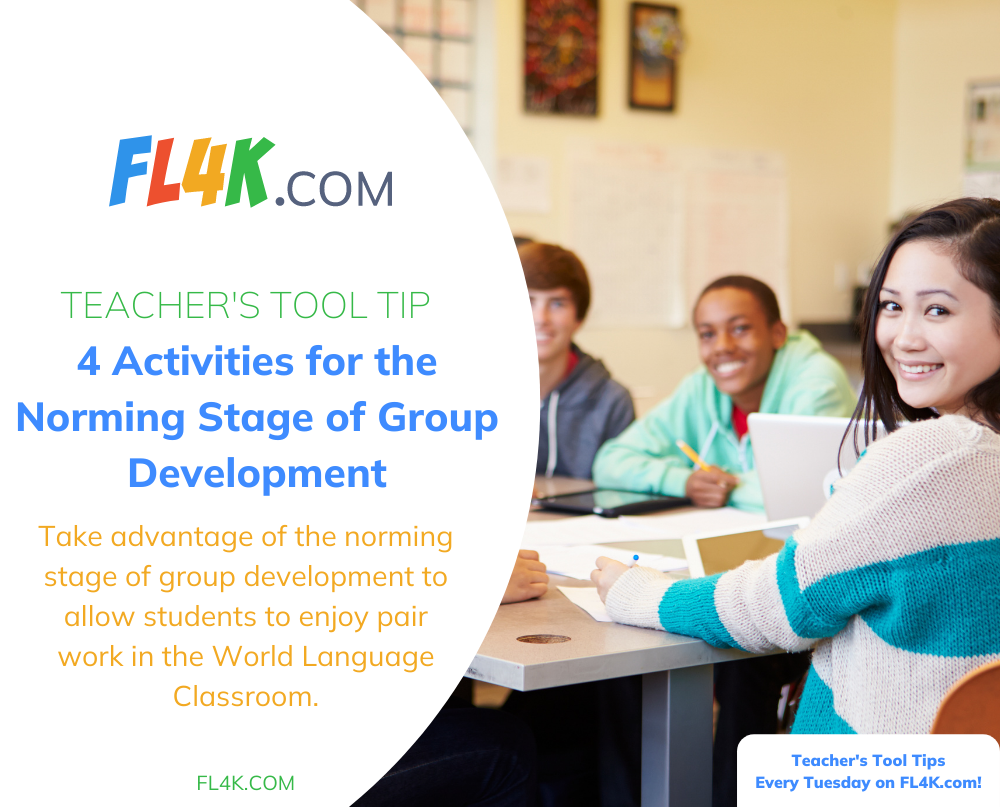Tuesday Teacher Tooltip: Take advantage of the norming stage of group development to allow students to enjoy pair work in the World Language Classroom
During the last two weeks, I have addressed the first two stages of group development, forming and storming, where students become acquainted with one another and wrestle with all different personality types. In the “norming” stage of group development, students have developed enough respect for one another that they can engage in pair work effectively. In this stage, students begin to cooperate and engage in partner activities.
Here are a few ideas to consider for this phase.
Peer Editing
Students can now comment on or edit one another’s work with maturity and respect.
Teachers can use Padlet or Flipgrid, both apps that allow students to critique each other’s work. These are platforms that allow students to post their own work and then comment on each other’s work. The students can’t wait to both respond to their peers’ work and then, read the comments about their own work.
Students can tease each other and have fun interacting. This kind of feedback exchange is healthy and motivating in a class where students know and respect one another!
Role-Playing
Once students have built trust in the classroom with one another, they begin to become much less intimidated. They will more likely volunteer to play a role with each other and practice their language proficiency skills while hamming it up!
Pair Work
In the norming phase of group development, you can begin to randomly pair students using the Class Dojo app or traditional methods of creating pairs.
Mixing it up really helps students to become better acquainted with one another and prevents any student from feeling excluded.
I always had sticks or notecards with every child’s name on a card. Just to create drama in the classroom, I would throw them up in the air and pick them up two at a time to create pairs. The kids always loved this method and had faith in the randomness of it due to this ancient, but very transparent method!
Dice Games
You can make a dice grid for students such as this sample for teachers.
Use real dice in the classroom or students can use a dice generator online. If they roll a 2 and a 6, they have to find the two possible questions in the grid for that combination and answer one of them. The one who rolls answers the question first and then asks the same or the other question to the partner.
Make dice games for every unit of study. This is the way to truly give students a chance to practice communicating. Kids love to express their opinions about everything! This activity gives the teacher a break, too. After 15 minutes of play, randomize the partners again and continue having the students work in pairs.
Norming is a wonderful stage of group development that allows for natural exchanges in the classroom that provide real world language exchanges.
With FL4K, our single platform program with a built-in culture curriculum for 10 different Hispanic countries, we provide dice games and ideas for pair work activities for every unit! Please check out our website to view samples of our state-of-the-art way of teaching World Language for real-world communication!
